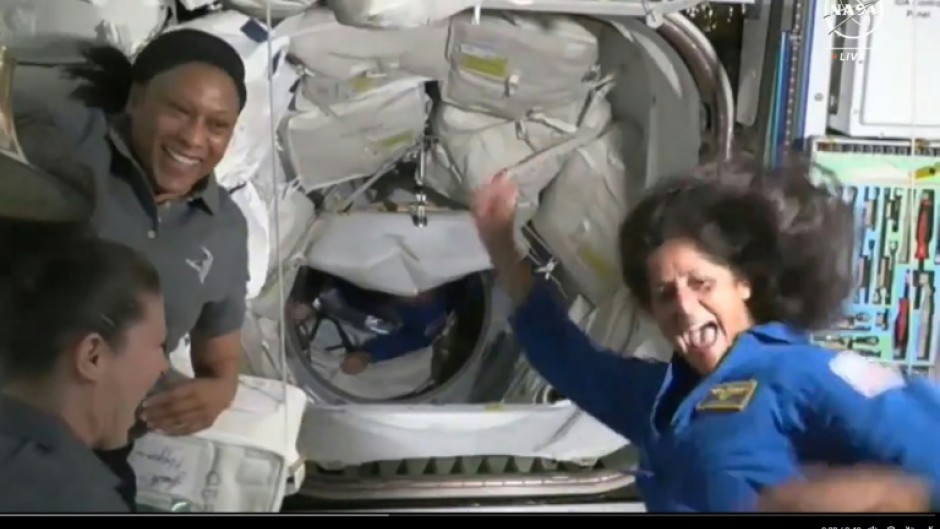WASHINGTON - A Boeing Starliner capsule carrying its first-ever astronauts docked with the International Space Station on Thursday after overcoming unexpected challenges arising from thruster malfunctions and helium leaks.
The spaceship dubbed "Calypso" rendezvoused with the orbital lab at 1:34pm ET over the southern Indian Ocean, allowing crewmates Butch Wilmore and Suni Williams to enter a while later.
"We're ready to get to work," declared Wilmore, while Williams performed a little dance to celebrate the arrival, the third stay aboard the ISS for both of the ex-Navy test pilots.
Docking was delayed by more than an hour after some of Starliner's thrusters that provide fine manoeuvring initially failed to kick in, forcing the astronauts to perform a "hot fire" to activate them.
"I would say Starliner made us work a little harder to get docked," Steve Stich, program manager for NASA's Commercial Crew Program, later told reporters, explaining that ground teams now had to work to understand the issues that had emerged during flight.
Wilmore and Williams are the first crew to fly Starliner, which Boeing and NASA are hoping to certify for regular rides to the ISS -- a role SpaceX has been fulfilling for the past four years.
The spaceship blasted off from Florida atop a United Launch Alliance Altas V rocket on Wednesday following years of delays and safety scares -- as well as two recently aborted launch attempts that came as astronauts were already strapped in and ready to go.
Prior to launch, it was known that there was one helium leak affecting Starliner.
While non-combustible, the helium provides pressure to the propulsion system. But it was determined the leak was too small to cause much of an impact.
During the flight, however, two more leaks emerged, and another was discovered after docking for a total of four.
That makes it more likely that a common issue is at play, rather than a one-off fault like a bad rubber seal.
Engineering teams believe there is more than enough helium left in reserve, and Starliner won't leak anymore while docked to the ISS.
But the issue will have to be monitored and further studied in other Starliners under construction at Boeing's factory, said Mark Nappi, vice president and program manager of Boeing's Commercial Crew Program.

